How Disney World Helped Me Find Joy in My Disability
Disney World helped me realize that my disability could be an advantage sometimes if I let it be, especially when traveling.
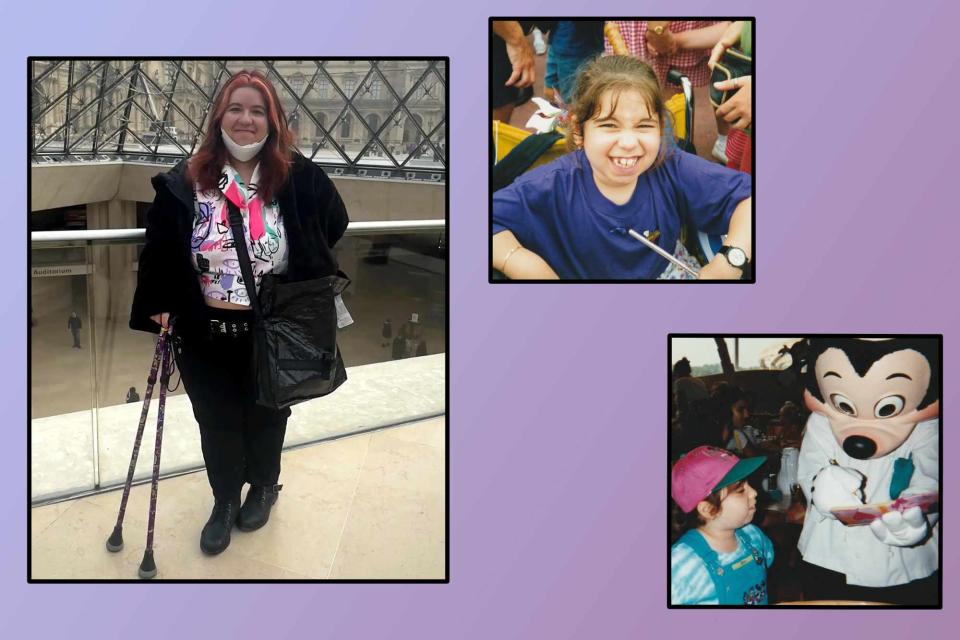
Courtesy of Ashley Couto
I didn’t have a typical childhood — I was diagnosed with juvenile rheumatoid arthritis at 18 months old. My earliest memories are of hospital waiting rooms and crushing on the lab tech who drew my blood every month with a butterfly needle.
My life was daily physio and occupational therapy to avoid being in a wheelchair in adulthood and taking new medications doctors promised would reduce my pain. I missed my kindergarten apple-picking trip because I was on my grandmother’s living room floor, hollering with back pain. I’d gone in for a spinal tap the day before — it took the resident 12 tries.
By age 7, I didn’t believe in magic and knew fairy godmothers didn’t exist. But the woman who showed up in the kitchen of my parents’ suburban bungalow from the Starlight Foundation promising to grant my wish felt pretty darn close.
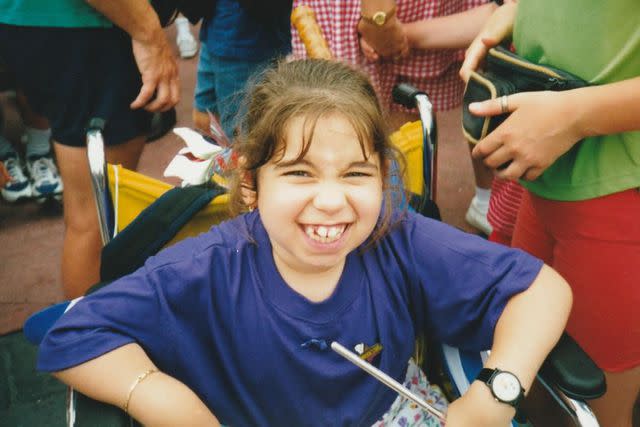
Courtesy of Ashley Couto
I asked for a trip to Disney World, a computer, or a meet-and-greet with the Backstreet Boys. Over 20 years later, I’m so glad I decided on Disney World — because I joined the N*SYNC fandom mere weeks later.
I always felt like an inconvenience at school because my disability needed to be “managed,” and I was well-acquainted with looks of pity. I was afraid of seeing that same look — “You’re not like us” — that I had grown so accustomed to with my steroid-rounded face and turned-in left foot.
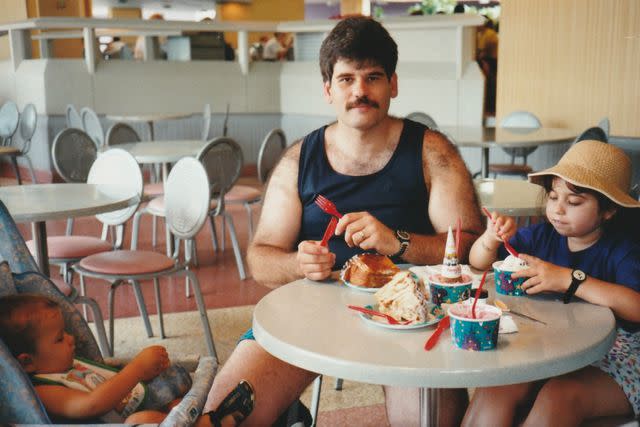
Courtesy of Ashley Couto
But not at Disney. I was a VIP at Disney World the second I sat in my rented wheelchair. I got to breeze past long lines to the VIP area, where I waited under five minutes for a ride. I still feel visceral glee when I think about skipping the 90-minute queue to the Tower of Terror during peak hours on my birthday with my dad and screaming my lungs out.
"I was a VIP at Disney World the second I sat in my rented wheelchair."
Disney World helped me realize that my disability could be an advantage sometimes if I let it be, especially when traveling.
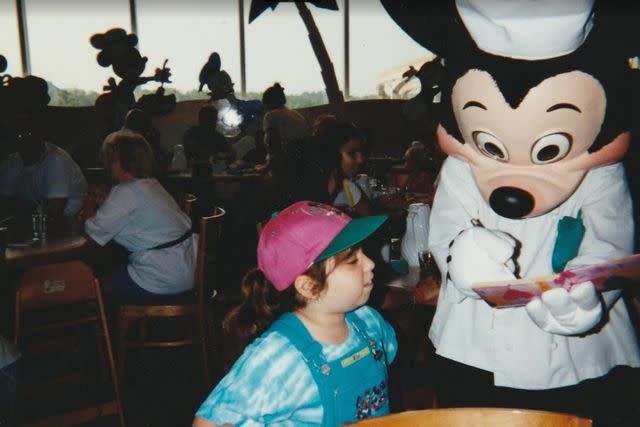
Courtesy of Ashley Couto
My favorite human experience is looking at the clouds below me in a window seat. I do everything I can to be in that scenario regularly. Being able to request airport special assistance makes my life — and, by extension, my family and friends’ lives — easier and less stressful. On arrival, an attendant puts all our bags on a cart and brings them to the taxi stand or parking lot.
Related: How I Explore America's National Parks As a Disabled Traveler
I’m often upgraded for free at hotels because I request a room with a bathtub as it’s better for my aching joints after a long day of travel, and those are usually premium rooms.
I don’t like beaches. I like old, musty-smelling museums with no air conditioning where I can cry in front of an old oil painting. Getting around these spaces with mobility issues usually involves secret corridors with additional artworks I only get to see because of my disability.
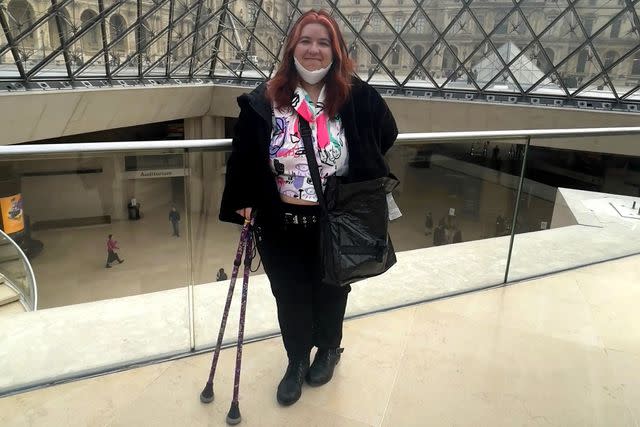
Courtesy of Ashley Couto
With a doctor’s note, I can also get into most major museums or attractions for free or at a discount for myself and, often, a companion with a letter. If you’re considering asking your doctor for a note, I recommend writing a draft and looking up disability travel regulations worldwide. I use the same letter no matter where I am in the world.
When I went to Paris earlier this year with my aunt, this tip saved us money on museum fares because nearly every museum we visited was free.
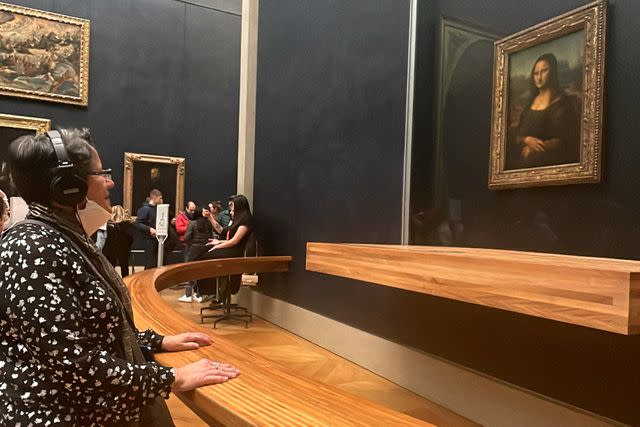
Courtesy of Ashley Couto
At the Louvre, disabled visitors get an as-close-to-unobstructed view of the Mona Lisa as possible. You don’t go into the constantly stuffed queue but rather drive or walk up. You’re let into the disability area several feet in front of the usual line by a guard. It’s just you and the Mona Lisa, and there’s no pressure to rush your visit.
Related: These 2 Accessibility Initiatives Will Change the Way You Think About Travel
Having a disability is impossibly hard. Nothing will ever make up for having to weigh my future fertility against a pain-relieving medication breakthrough at age 9 or being woken up mid-hip replacement because I was moving too much in my sleep and smelling the burning of my muscle and hearing the hammering of a prosthetic hip into my bone cavity.
But early boarding and getting through security in under 15 minutes in the priority line with no wait time helps.
For more Travel & Leisure news, make sure to sign up for our newsletter!
Read the original article on Travel & Leisure.


